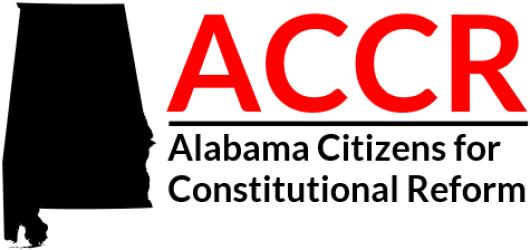An advisory panel for a voter-approved effort to make changes to the 120-year-old Alabama Constitution is studying three sections that had racist language or racist intent.
The Committee on the Recompilation of the Constitution held a public hearing at the State House this morning. The committee did not make recommendations because it is still receiving public comments.
Voters approved a constitutional amendment authorizing the recompilation project by a 2-to-1 margin in November 2020. In May, the Legislature passed a resolution setting up the 10-member recompilation committee.
-
- Remove all racist language
- Delete duplicative and repealed provisions
- Consolidate provisions regarding economic development
- Arrange all local amendments by county of application.
The recompilation committee, which includes six lawmakers and four others, will advise Lathram, whose draft will go to the Legislature next year. If approved by three-fifths of representatives and senators, it would go on the ballot for voters in November 2022.
This morning, Lathram made a presentation to the committee and distributed a memo about sections of the constitution that have been called into question as racist or potentially racist.
The authorization of involuntary servitude for punishment of a crime could qualify as a racist provision because it was used to force many Blacks back into labor, including the seasonal agricultural work for which slaves were no longer available, Lathram said.
Lathram said about 19 other states had similar language on involuntary servitude in their constitutions. He said voters in Colorado, Nebraska, and Utah voted to repeal the language during the last three years, and voters in Tennessee will consider that next year.
Lathram noted that almost identical language allowing involuntary servitude as a punishment for crime is included in the 13th Amendment to the U.S. Constitution, which abolished slavery.
Some of the commenters questioned the value of the recompilation project, Lathram said, suggesting that it was a waste of time to revisit outdated, nullified laws. Lathram said he did not agree with that.
Rep. Merika Coleman, D-Pleasant Grove, who sponsored the constitutional amendment starting the process and who chairs the recompilation committee, said the recompilation project is important.
“On the economic development side, we also want folks to know we’re open for business. We want people to come to the state of Alabama, spend your tax dollars, and that we again are a state that is this 21st century state, all kinds of different people, all kinds of different cultures, and we do not reflect what was in that 1901 constitution.”
“I think words matter,” Garrett said. “And I think we need to just clean the constitution up, make it a document that is relevant today. We have a history that we’re trying to address. And we’re trying to move from the past to the future. And I think this is an obstacle in many ways.
“I think it’s important that as a state with our history that we acknowledge where we want to go. And where we want to go is not where we’ve been necessarily.”
Section 259 says revenue from poll taxes goes to support public schools in counties where they are collected. The section is inoperative because Alabama no longer imposes poll taxes, which effectively disenfranchised many Blacks and poor white voters.
Sen. Sam Givhan, R-Huntsville, a committee member, made a motion today for the committee to vote to recommend removal of Section 259. But the committee decided to postpone voting on any recommendations because public comments are still coming in.
That segregation requirement became unconstitutional after the Brown v. Board of Education ruling by the U.S. Supreme Court in 1954.
That became an issue in 2004, when a proposed amendment would have repealed the segregated schools requirement and poll tax language, as well as the part of Amendment 111 saying there was no right to a publicly funded education.
In 2012, a similar amendment would have repealed the school segregation and poll tax language but would not have touched the language from Amendment 111 that there was no right to a publicly funded education. That drew opposition from the Alabama Education Association and others who argued for stripping the language on no right to a publicly funded education. Voters rejected the amendment by about a 60-40 percent margin, again allowing the invalidated segregation clause to remain in the constitution.
